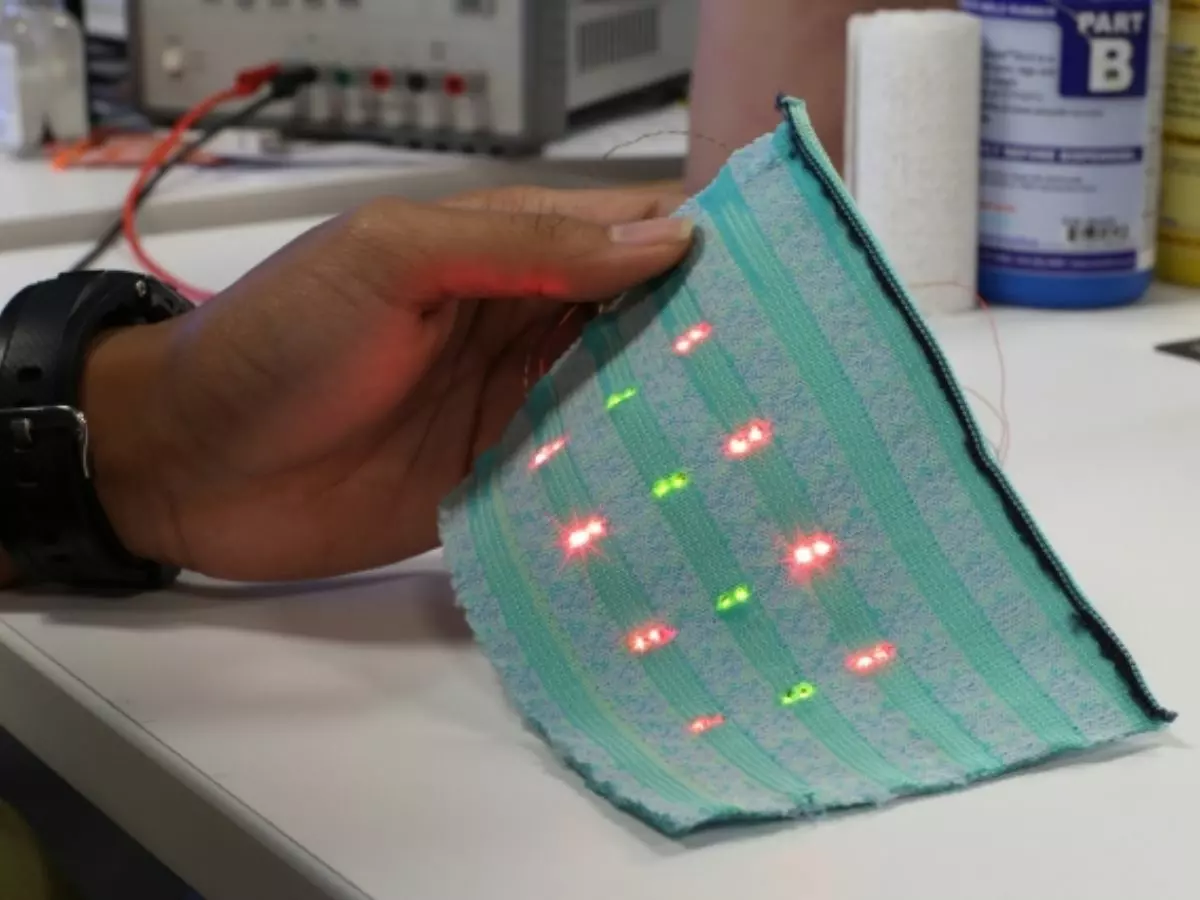MIT Engineers Build Smart Cloth Sensor That Can Track Our Health And Save Lives
A team of researchers from MIT has developed a small wearable that can be stitched into clothing

Today, most of the devices in our lives and in our homes are getting smarter -- from smartphone to a smartwatch to a smart TV.
And these smart devices have sure;y made our lives a whole lot easier. Now, researchers at MIT have decided to make our clothing smart too.
 MIT
MIT
A team of researchers from MIT has developed a small wearable that can be stitched into clothing that can monitors the wearer's vitals -- sort of like a fitness tracker, but on our clothes instead of our wrists. The sensor is extremely lightweight and best of all -- it can survive getting washed in a washing machine.
The sensor is compatible with a variety of fabrics and is flexible enough to not poke or protrude while sitting or walking. The sensors aren¡¯t visible from the outside so your cool-looking t-shirt remains cool.
The prototype developed by the engineers at MIT pairs with a smartphone to keep a track of a user¡¯s health, through an app.
Researchers feel this flexible sensor array on clothes has several life-changing applications in the field of sports, medicine, even space to monitor an astronaut¡¯s vitals.
In fact, part of the research was even funded by NASA and MIT Media Lab Space Exploration Initiative.
 MIT
MIT
Canan Dagdeviren, the LG Electronics Career Development Assistant Professor of Media Arts and Sciences at MIT explained, ¡°We can have any commercially available electronic parts or custom lab-made electronics embedded within the textiles that we wear every day, creating conformable garments. These are customizable, so we can make garments for anyone who needs to have some physical data from their body like temperature, respiration rate, and so forth.¡±
 MIT
MIT
The sensor could be a boon to those suffering from chronic conditions and have to be constantly monitored. A fabric-based sensor array like this would not only make it more practical but a whole lot comfortable for the patient.
